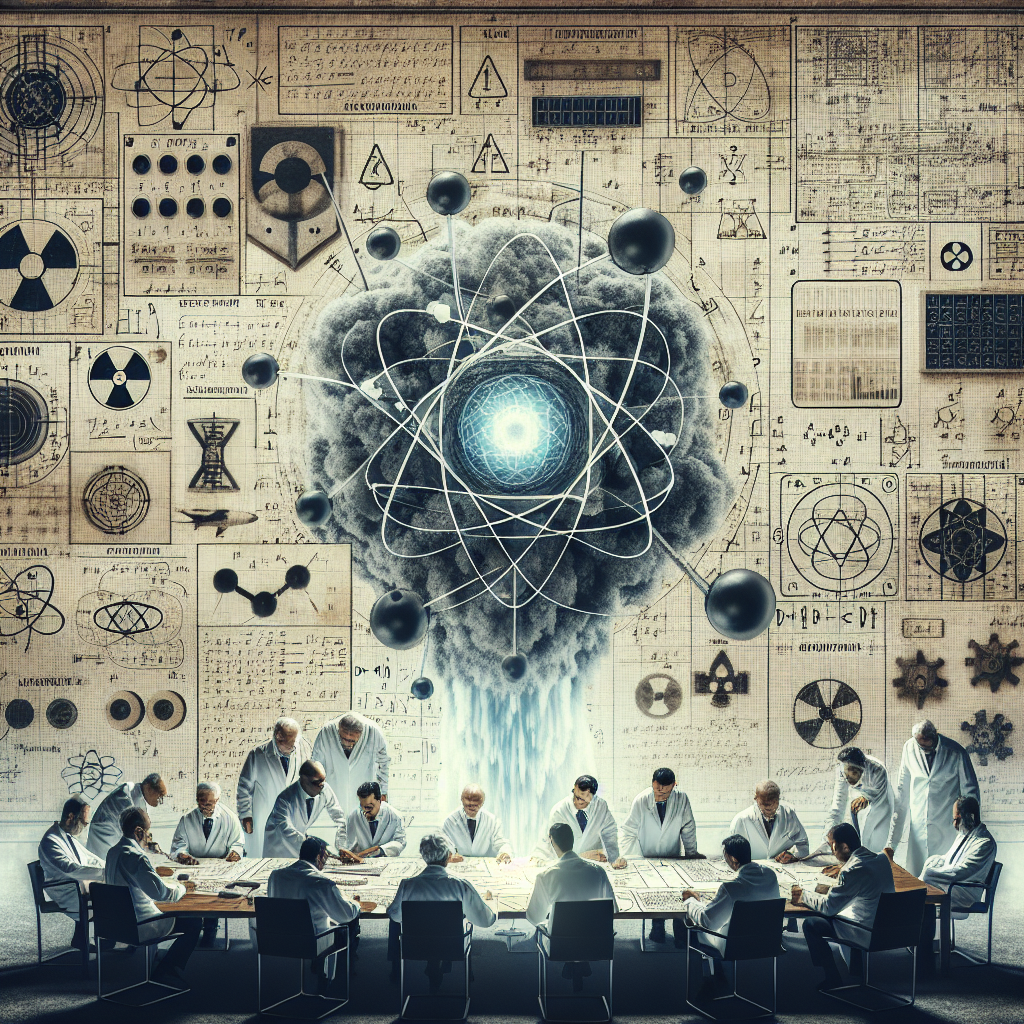The Inevitability of the Atomic Bomb in a World Without World War II
The notion of a world without World War II might seem like fertile ground for speculative fiction, but when it comes to the atomic bomb, it appears that history had a certain inevitability. The progression of events leading to the creation of this devastating weapon suggests that, even lacking the cataclysmic milieu of global conflict, the bomb’s invention might have been inescapable, albeit on a less urgent timeline.
The Precursor to Necessity: Theoretical Foundations and Initial Discoveries
Long before the first mushroom cloud rose over a test site, the scientific community had already laid the groundwork for nuclear fission. The discovery of the nuclear chain reaction, a hallmark in physics, had set the stage for what was to come. This underlying science was robust; it was a Pandora's box that, once opened, was bound to reverberate through the corridors of power worldwide.
The mere existence of this knowledge created a precarious situation. Nations aware of these theoretical possibilities faced a new strategic calculus. The potential to harness such immense power fundamentally altered the geopolitical landscape, pushing towards a race not just for superiority, but for survival.
A Race Against Time and Against Each Other
Despite the absence of World War II, the race to develop an atomic bomb might have proceeded under different pressures. The fear of falling behind in scientific and military capabilities would likely have been enough of a catalyst. Countries with the resources and scientific infrastructure, aware that others were potentially pursuing similar paths, would have been compelled into action by the mere suspicion of parallel developments.
Critically, the motivation during peacetime would not stem from the immediate threat of war, but rather from the strategic necessity to not be left vulnerable. This preemptive mindset, driven by the potential existential threat posed by nuclear weapons, could have fostered an environment where nations raced to be the first to achieve this new pinnacle of destructive power.
Deterrence: The Strategic Imperative
In our hypothetical non-war scenario, the concept of deterrence would still hold paramount importance. As elucidated in discussions by early nuclear theorists, possessing a bomb was not merely about the ability to unleash destruction but also about preventing others from using theirs. The deterrent effect of nuclear weapons, encapsulated in the doctrine of Mutually Assured Destruction (MAD), would have emerged as a fundamental principle of international relations even in a world spared from World War II’s devastation.
The logic is straightforward and chilling: the best defense against a nuclear bomb is your own nuclear bomb. This stark realization would likely have spurred nations into a secretive and frantic arms race, desperate to secure their own safety through the attainment of the ultimate weapon.
Technological and Ethical Progression
Without the pressing urgency of a world at war, the development of the atomic bomb could have taken a different trajectory. Perhaps more resources would have been devoted to understanding the long-term consequences of nuclear weapons, potentially leading to early forms of arms control agreements and international oversight.
Yet, the dual-use nature of nuclear technology—capable of both energy generation and unfathomable destruction—would pose a persistent dilemma. The promise of limitless energy would tantalize, while the specter of annihilation would terrorize. This dichotomy might have driven more nuanced international discourse on the matter, opening pathways to cooperation but also to espionage, mistrust, and brinkmanship.
Conclusion: The Shadow of the Bomb
In summary, even in a world untouched by the horrors of World War II, the atomic bomb’s emergence seems almost preordained. The combination of scientific discovery, geopolitical strategy, and the human inclination towards both preservation and power would likely have conspired to bring about the nuclear age. Its development would have been a question not of "if" but of "when" and "who."
Thus, the atomic bomb stands not just as a product of war, but as a milestone of human ingenuity and ambition, casting a long shadow across any potential historical timeline. The inevitability of its creation underscores a profound aspect of human nature and the relentless march of technology—a march that, once begun, is difficult, if not impossible, to reverse.
For further exploration on this topic, here are some valuable resources:
Related News
- The Atomic Paradox: A Tale of Destruction and Misconception
- The Transformative Impact of Nuclear Energy on Warfare
- The Convergence of Politics, Military Necessity, and the Atomic Bomb: A Deeper Dive into World War II's Endgame
- The Strategic Decisions Behind the Atomic Bombings: Unveiling Hidden Motives
- The Ever-Present Threat: Analyzing the Odds of Nuclear Deterrence Failure
